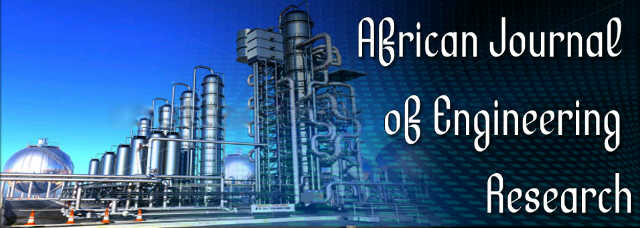Assessment of cassava waste effluent effect on some water sources in Ilorin, Nigeria
Onifade T. B., Adeniran K. A. and Ojo O. I.African Journal of Engineering Research
Published: November 25 2015
Volume 3, Issue 3
Pages 56-68
Abstract
This paper reports effect of cassava waste effluent on surface and underground water resources in Ilorin, Nigeria. Three cassava processing sites located near streams and well at Agbo-Oba, Tanke and Oko-Erin areas within Ilorin City were studied. Effluents were collected during rainy season (August and September) and part of the dry season (January and February). Physical, chemical and bacteriological parameters of the cassava waste effluent collected were analyzed using World Health Organization (WHO) standards for drinking water as base line. From results, the average cyanide content (0.35 mg/L) for the samples was found to be higher than the level allowed (0.1 mg/L) for drinking water. Also the least value of 15.5 mg/L color of the total samples was higher than the recommended value (15.0 mg/L), while the 0.03 and 0.15 Escherichia coli values obtained were far above zero count/100 ml recommended by WHO as permissible for drinking water. Therefore, cassava waste effluent discharged from the processing sites monitored needs to be treated thoroughly before discharging them to adjacent water sources.
Keywords: Cassava waste effluent, pollution effect, surface water, ground water.
Full Text PDF
